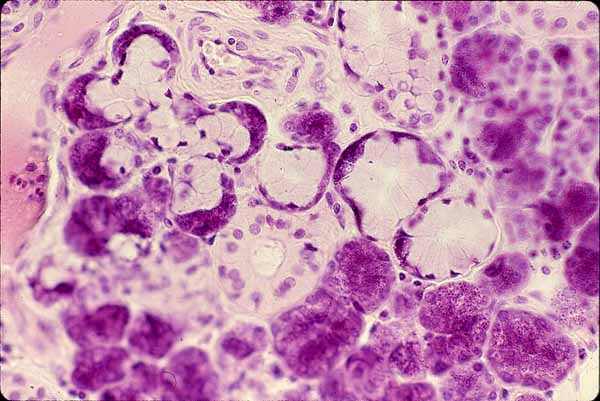


Notes
This image of minor, mixed salivary glands contrasts the appearance of serous cells and mucous cells.Click on the image to identify the tissues.
(Depending on your browser, simply "hovering" over an area may produce a label. Unlabelled regions are glandular stroma -- connective tissue together with small blood vessels, ducts, and nerves.)In routine preparations such as this one, serous cells often appear darker appearance than mucous cells.
Mucus does not stain well with standard acidic or basic dyes. The PAS reagent is used to demonstrate mucus.
Nuclei of mucous cells usually appear dense and compressed in the base of the cell. Nuclei of serous cells appear rounder and usually more centrally located.
Serous cells are usually arranged into acini. Mucous cells are usually arranged into tubules. Occasionally, individual serous cells will occur at the ends of a mucous tubules. In section, these commonly have a crescent-moon appearance. Several of these serous demilunes appear in the above illustration.
Related examples:
 |
 |
 |
 |
 |
 |
 |
 |
 |
Comments and questions: dgking@siu.edu
SIUC / School
of Medicine / Anatomy / David
King
https://histology.siu.edu/erg/GI133b.htm
Last updated: 27 May 2022 / dgk